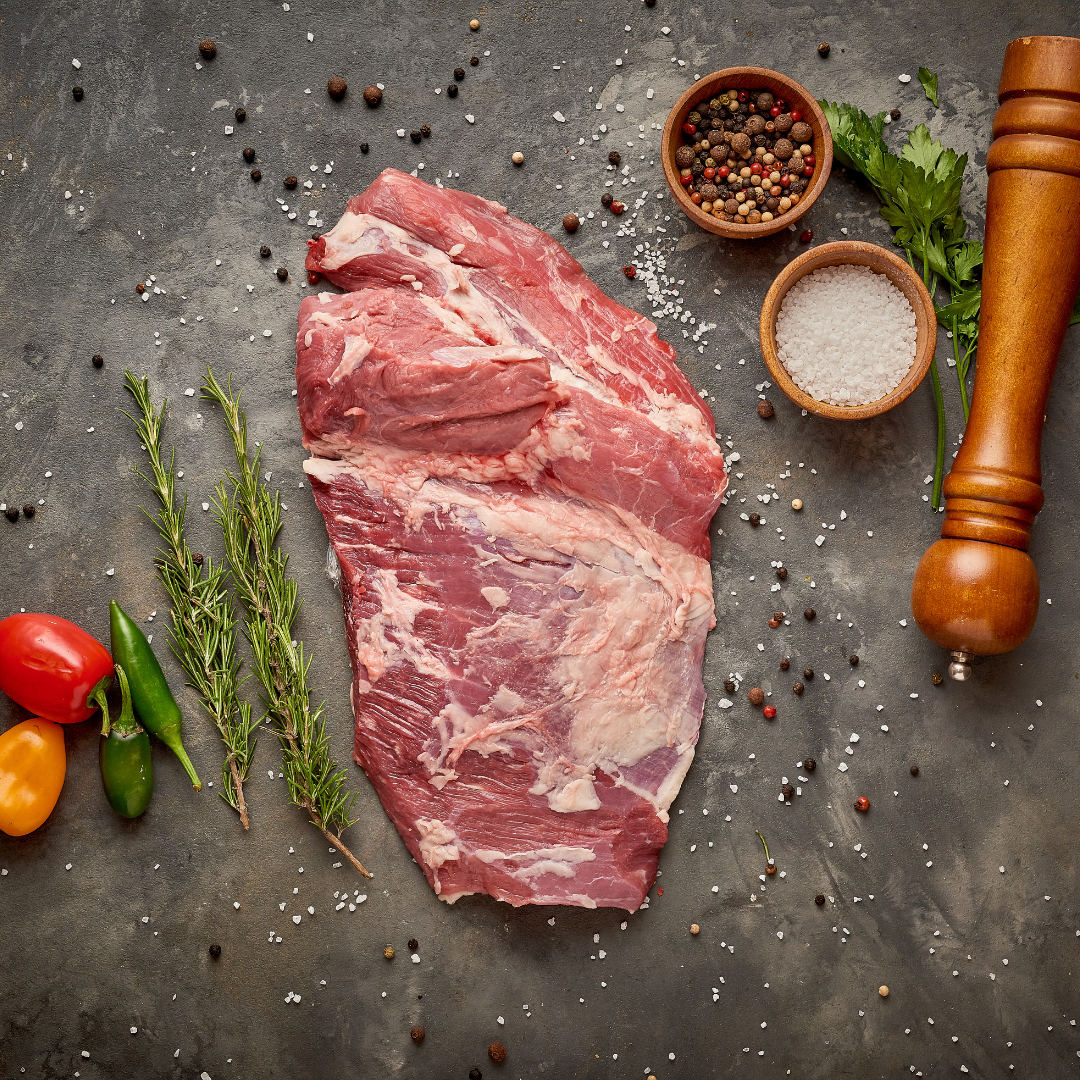KBW | Do You Have a B Vitamin Deficiency?

B vitamins are incredibly important for your overall health. And side effects of deficiencies in these vitamins can lead to anything from megaloblastic anemia to miscarriage and diarrhea, and more.
Do you know the Vitamin B deficiency signs and what to do about it?
All About Vitamin B1
- Vitamin B1: Also called thiamin, helps convert food into energy and has neurological benefits.
- Symptoms of low B1: loss of appetite, fatigue, irritability, tingling in the arms and legs, muscle weakness, and blurry vision.
- Severe deficiency: can lead to a condition called Beriberi.
- B1 can be found in Beef liver, Black beans, Lentils, Macadamia nuts, Edamame, cooked Pork loin, and Asparagus.
All About Vitamin B2
- Vitamin B2: Also called riboflavin, helps convert food into energy and helps maintain proper eyesight.
- Symptoms of B2 deficiency: Skin issues, swollen cracked lips, lesions at the corners of the mouth, sore throat, itchy and red eyes.
- Severe Vitamin B2 deficiency: can lead to degeneration of the liver and nervous system and reproductive problems.
- Foods with B2: Eggs, organ meats, including kidney and liver, lean meats, low-fat milk, green vegetables, including broccoli and spinach, fortified cereals, grains, and bread

All About Vitamin B3
- B3: Also called niacin, B3 helps convert food into energy and also aids in proper digestion and a healthy appetite, and is important for cell development.
- Symptoms of B3 deficiency: A lack of niacin can cause digestive issues, such as nausea, and abdominal cramps may also cause mental confusion.
- Severe B3 deficiency: causes Pellagra which is marked by the “3 D’s”: Dementia, Diarrhea, and Dermatitis.
- Foods with B3: Meat, including poultry, beef, pork, and fish, some nuts, legumes, and grains, fortified bread and cereals

All About Vitamin B6
- Vitamin B6: Also called pyridoxine, B6 helps the body turn food into energy. It can also help the body fight infections by supporting the immune system.
- Symptoms of low B6: Depression, confusion, nausea, anemia, susceptibility to infections, and skin rashes.
- Severe deficiency can lead to Peripheral neuropathy, seborrheic dermatitis, glossitis, and cheilosis, and, in adults, depression, confusion, and seizures.
- Foods containing B6: Poultry, fish, organ meats, potatoes, and other starchy vegetables and fruits, except for citrus fruits.

All About Vitamin B9
- Vitamin B9: Also called folate. Like most B vitamins, B9 fosters the growth of red blood cells. It also reduces the risk of birth defects when pregnant women consume it. Low folate levels have been linked to miscarriage, stroke, and a variety of other diseases.
- *Important note: Folate occurs naturally in foods. Folic acid is the synthetic form, often found in fortified, processed foods. Those with the MTHFR C6A877T genetic polymorphism do not possess the ability to process folic acid in the same way as those without that polymorphism. For these individuals, high levels of folic acid can actually be dangerous. A better choice is methyl folate or folinic acid, but NOT folic acid.
- Symptoms of B9 deficiency: Megaloblastic anemia, which causes weakness, fatigue, trouble concentrating, irritability, headache, heart palpitations, shortness of breath, open sores in the mouth, and changes in skin, hair, or fingernail color.
- Foods with B9: Beef liver, asparagus, brussels sprouts, dark green leafy vegetables, including spinach and mustard greens, oranges and orange juice, other fruits and fruit juices, peanuts and other nuts, beans, including kidney beans, and peas, including black-eyed peas
All About Vitamin B12
- B12: Also known as cobalamin, helps regulate the nervous system. It also plays a role in growth and red blood cell formation.
- B12 deficiency signs: Fatigue, constipation, loss of appetite, weight loss, numbness and tingling in the hands and feet, balance problems, confusion, poor memory, and soreness of the mouth or tongue.
- Severe deficiency can lead to Megaloblastic anemia, paranoia, dementia, and depression.
- Foods with B12: Vitamin B12 is found primarily in meat and dairy products, so people on a vegan and vegetarian diet are at risk for deficiency. Vegetarian sources include dairy and eggs. Vegan sources of B12 include fortified foods and nutritional yeast. The best sources of vitamin B12 include beef liver, clams, meat, fish and poultry, eggs, milk, cheese, fortified breakfast cereals, and nutritional yeast.

The Short Version:
In case you couldn’t tell as I went through each vitamin, eating a rich variety of plant and animal products is the best way to prevent B vitamin deficiencies. So now that you know what to eat, you can get started filling your plate with these foods!
If you need help planning out nutrient-dense meals, my team of registered dietitians and I are happy to help guide you through it all. Just click the link to apply to work with us HERE and let’s get started.
Are you ready to start feeling better?
My team and I are here to partner with you on your health goals.
Find out more about working with us here ↓



